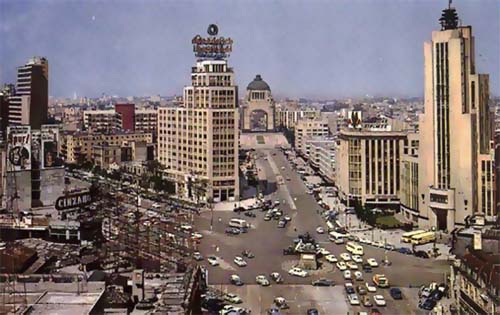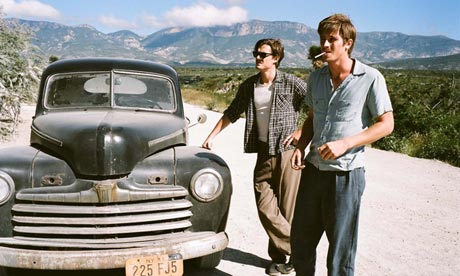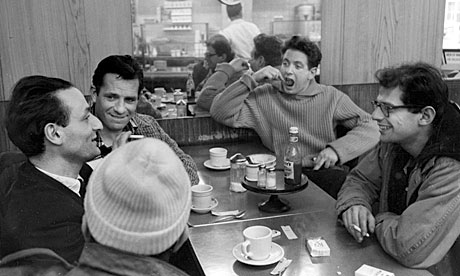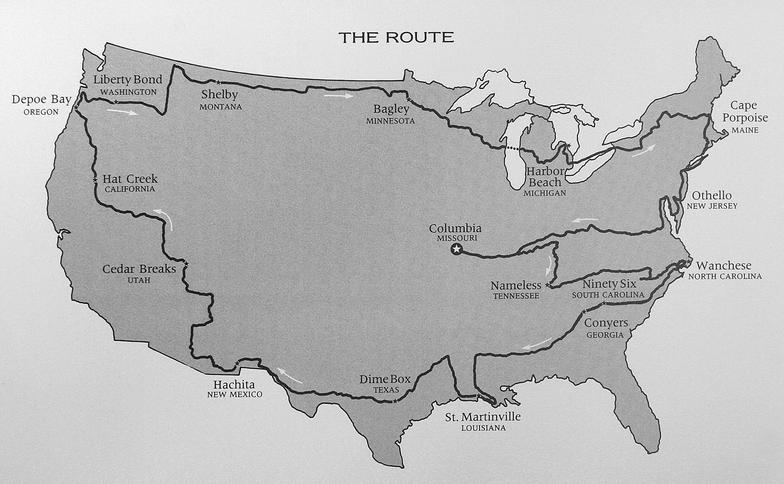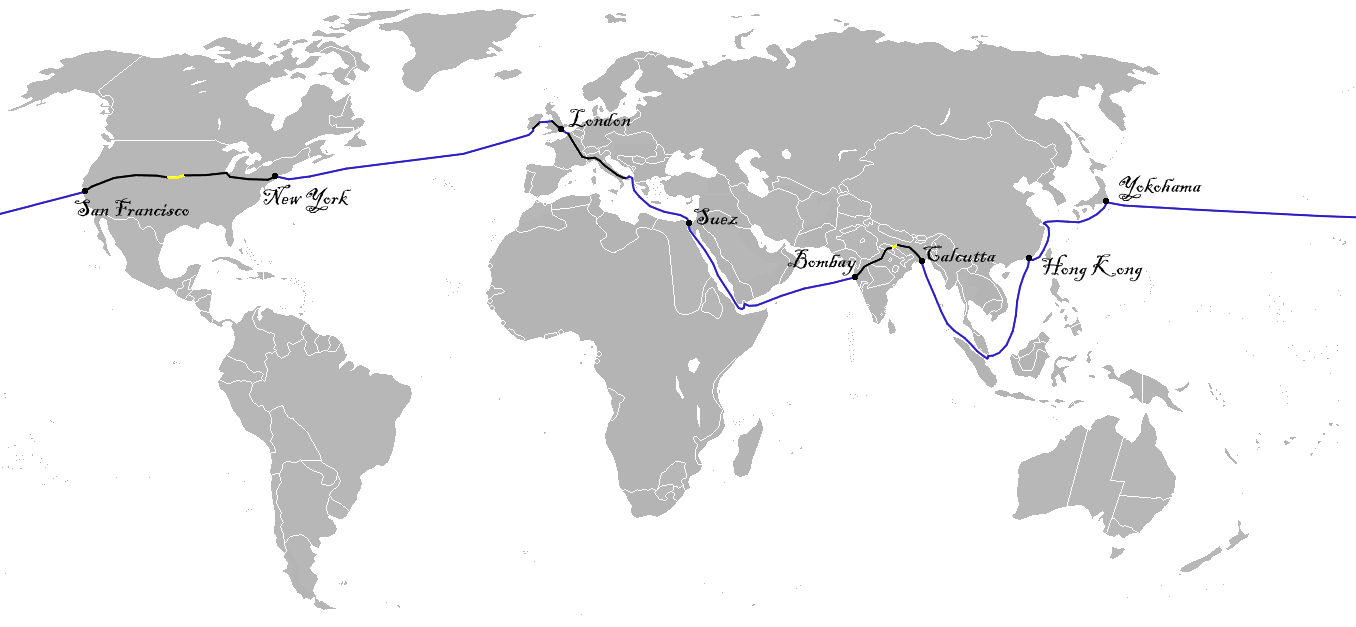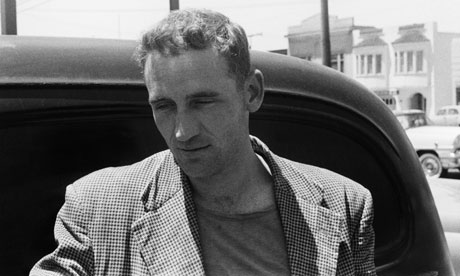“A brief mountain pass took us suddenly to a height from which we saw all of Mexico City stretched out in its volcanic crater below and spewing city smokes and early dusklights. Down to it we zoomed, down Insurgentes Boulevard, straight toward the heart of town at Reforma. Kids played soccer in enormous sad fields and threw up dust. Taxi-drivers overtook us and wanted to know if we wanted girls. No, we didn’t want girls now. Long, ragged adobe slums stretched out on the plain; we saw lonely figures in the dimming alleys. Soon night would come. Then the city roared in and suddenly we were passing crowded cafes and theaters and many lights. Newsboys yelled at us. Mechanics slouched by, barefoot, with wrenches and rags. Mad barefoot Indian drivers cut across us and surrounded us and tooted and made frantic traffic. The noise was incredible. No mufflers are used on Mexican cars. Horns are batted with glee continual. “Whee!” yelled Dean. “Look out!” He staggered the car through the traffic and played with everybody. He drove like an Indian. He got on a circular glorietta drive on Reforma Boulevard and rolled around it with its eight spokes shooting cars at us from all directions, left, right, izquierda, dead ahead, and yelled and jumped with joy. “This is traffic I’ve always dreamed of! Everybody goes!” An ambulance came balling through. American ambulances dart and weave through traffic with siren blowing; the great world-wide Fellahin Indian ambulances merely come through at eighty miles and hour in the city streets, and everybody just has to get out of the way and they don’t pause for anybody or any circumstances and fly straight through. We saw it reeling out of sight on skittering wheels in the breaking –up moil of dense downtown traffic. The drivers were Indians. People, even old ladies, ran for buses that never stopped. Young Mexico City businessmen made bets and ran by squads for buses and athletically jumped them. The bus-drivers were barefoot, sneering and insane and sat low and squat in T-shirts at the low, enormous wheels. Ikons burned over them. The lights in the buses were greenish, and dark faces were lined on wooden benches.
“In downtown Mexico City thousands of hipsters in floppy straw hats and long-lapeled jackets over bare chests padded along the main drag, some of them selling crucifixes and weed in the alleys, some of them kneeling in beat chapels next to Mexican burlesque shows in sheds. Some alleys were rubble, with open sewers, and little doors led to closet-size bars stuck in adobe walls. You had to jump over a ditch to get your drink, and in the bottom of the ditch was the ancient lake of the Aztec. You came out of the bar with your back to the wall and edged back to the street. They served coffee mixed with rum and nutmeg. Mambo blared from everywhere. Hundreds of whores lined themselves along the dark and narrow streets and their sorrowful eyes gleamed at us in the night. We wandered in a frenzy and a dream. We ate beautiful steaks for forty-eight cents in a strange tiled Mexican cafeteria with generations of marimba musicians standing at one immense marimba—also wandering singing guitarists, and old men on corners blowing trumpets. You went by the sour stink of pulque saloons; they gave you a water glass of cactus juice in there, two cents. Nothing stopped; the streets were alive all night. Beggars slept wrapped in advertising posters torn off fences. Whole families of them sat on the sidewalk, playing little flutes and chuckling in the night. Their bare feet stuck out, their dim candles burned, all Mexico was one vast Bohemian camp. On corners old women cut up the boiled heads of cows and wrapped morsels in tortillas and served them with hot sauce on newspaper napkins. This was the great and final wild uninhibited Fellahin-childlike city that we knew we would find at the end of the road. Dean walked through with his arms hanging zombie-like at his sides, his mouth open, his eyes gleaming, and conducted a ragged and holy tour that lasted till dawn in a field with a boy in a straw hat who laughed and chatted with us and wanted to play catch, for nothing ever ended.”
—
from On the Road , by Jack Kerouac

